Inside the downfall of Britain’s banned far-right terrorists
Matthew Collins details the crucial role of Hope Not Hate – and the group’s whistleblower – in the destruction of National Action and the conviction of Jack Renshaw for plotting to murder an MP
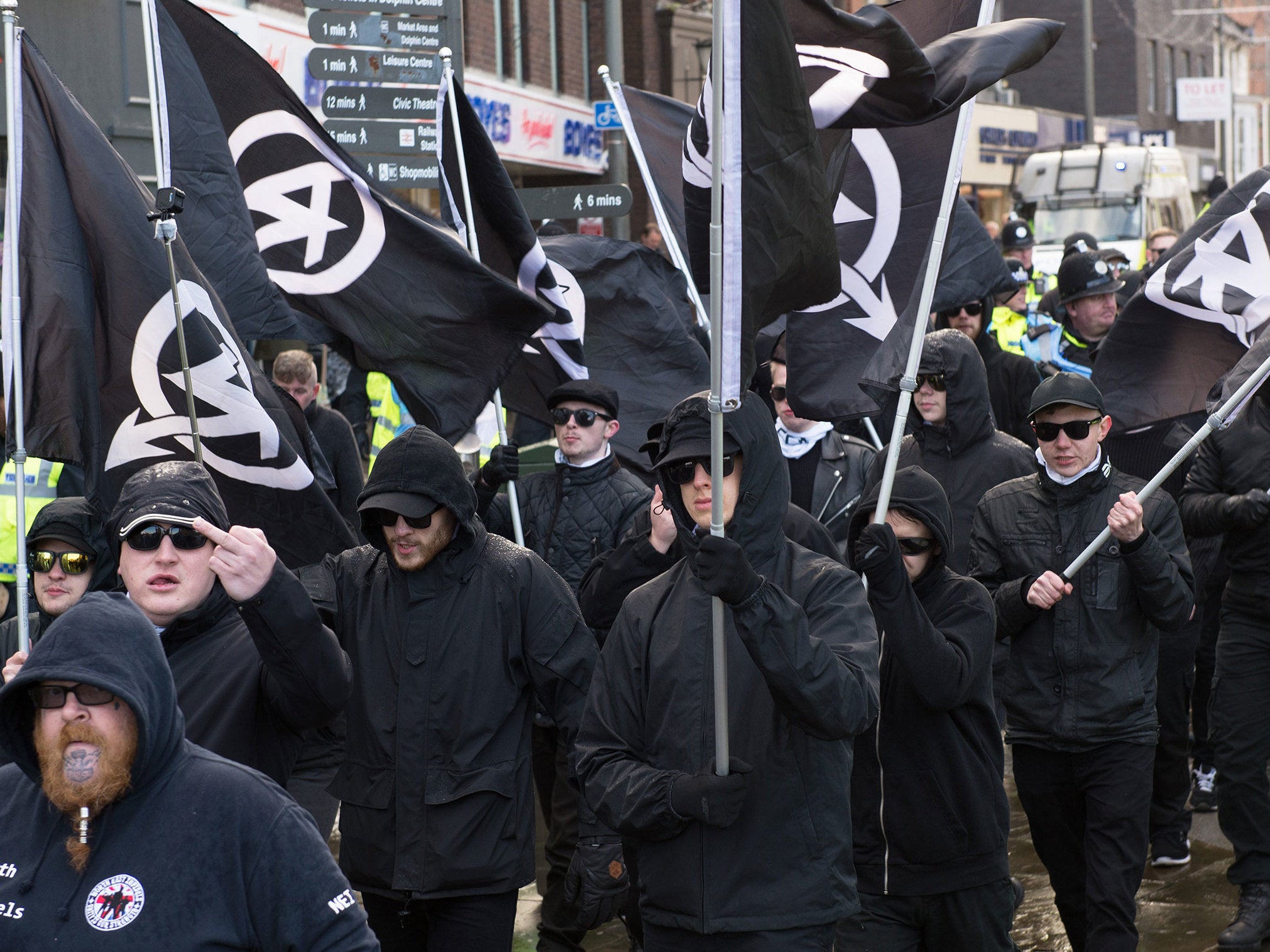
Your support helps us to tell the story
From reproductive rights to climate change to Big Tech, The Independent is on the ground when the story is developing. Whether it's investigating the financials of Elon Musk's pro-Trump PAC or producing our latest documentary, 'The A Word', which shines a light on the American women fighting for reproductive rights, we know how important it is to parse out the facts from the messaging.
At such a critical moment in US history, we need reporters on the ground. Your donation allows us to keep sending journalists to speak to both sides of the story.
The Independent is trusted by Americans across the entire political spectrum. And unlike many other quality news outlets, we choose not to lock Americans out of our reporting and analysis with paywalls. We believe quality journalism should be available to everyone, paid for by those who can afford it.
Your support makes all the difference.Jack Renshaw had been arrested in January 2017 for his two speeches in Blackpool and Leeds in 2016, in which he called for violence against Jews and immigrants. Unbeknown to his National Action comrades, he’d also been reported to police for grooming children by an unnamed relative in February. In the course of the police investigation, evidence was found on four different phones that he’d been attempting to persuade young boys to spend the night with him. Renshaw had offered two boys cash and pizza to perform a variety of sexual acts. In February 2017 he was informed that he was under investigation for child exploitation, as well as his race-hate charges.
His friends in National Action were aware Renshaw had been forbidden from contact with children, but misunderstood it to mean he was regarded as a radicalisation danger. Yet his lust for boys was extreme. Using the name Randy Marsh (“because you make me randy”), his internet search interests centred around finding young boys who liked to be or were forced to be penetrated. As well as sending pictures of himself to two youngsters he met online, his internet searches were for terms like “young boys being bummed”.
In May 2017, Renshaw was formally notified he was likely to be charged on two counts of grooming. Trying to play for time, he told National Action the police investigation into his speeches was trying to make him look like a paedophile. Everyone sympathised with him, but he was becoming awfully morbid on his Facebook account. “It will soon all be over,” he wrote. Later in the same month, a meeting was held in the midlands about “moving people”.
Renshaw was stewing over what life would be like with a conviction for child grooming. His reputation for tough speeches and advocating the hunting down of Jews and immigrants would be all but forgotten. He’d be a friendless pariah and would spend years stuck in prison on the “nonces” wing, with no visitors to bring him fan mail from fellow Nazis on the outside.
As I flew off on holiday in late June, I told Robbie Mullen, Hope Not Hate’s source inside National Action, that I’d bring him back a stick of rock and 200 Benson & Hedges. He seemed rather under-impressed by the idea of toothache and lung cancer. I asked him and the others who passed information to try not to call me unless it was an absolute emergency. My other half had even stipulated, given the recent intensity and days away because of work, there were to be no phone calls from Hope Not Hate, its chief executive Nick Lowles, “or any Nazis who have run out of bog roll at 2am” while we took a rare holiday together.

On Saturday 1 July, just after 10pm, my phone pinged. It was Mullen. “Call me ASAP,” the message read. Shamefully, I collapsed on my bed thinking it could wait until morning.
At 6am I rang Mullen and our lives changed on the spot. The previous day Jack Renshaw had met with three people in Liverpool. From there he travelled to Warrington for the evening, ringing an assembled cast and crew to make sure they were in their usual spot at the Friar Penketh pub, where National Action leader Christopher Lythgoe held his briefings. Renshaw had been trying to initiate this meeting for a week.
Renshaw joined Mullen, Lythgoe and Matthew Hankinson, who arrived on Renshaw’s invitation. It would transpire that Renshaw’s Liverpool meeting had been with Claudia Patatas and Adam Thomas.
There was little messing about. Flashing his credit cards (he’d used a taxi to transport him from Liverpool to Warrington), Renshaw told the group he had bought a machete – an 18in near-sword [Roman short sword] – and was going to murder his local MP Rosie Cooper, a Labour Party politician who was first elected as West Lancashire MP in 2005.
He’d had enough, he said. He wanted to send a message that the “dog was going to bite back”. He, the dog, had been poked too many times and Rosie Cooper would go the same way as Jo Cox. The group sat impassively as the small, almost delicate-looking young man spoke. Jack Renshaw, the weird creature that had unleashed some of the most vile tirades imaginable against Jews in his most recent past, told them that as well as killing Cooper, he would kill the female police officer investigating him for child sexual offences (though he omitted details of the charges he was facing).
He had it all planned out. He knew where to find Cooper, had even searched online how to kill her and how long it would take her to bleed to death. He would surprise and take her as a hostage, and after attacking her would then demand that his investigating officer, Victoria Henderson, should be sent in to negotiate with him. He would then kill Henderson before dying at the hands of other police officers, whom he hoped would shoot him as he ran at them wearing a fake suicide vest.
Mullen claimed the group quibbled why he would only wear a fake suicide vest. They could discuss it later, he said, but, Mullen claims they were they up for it. He even offered to do a jihadi-style video for the occasion of murder, murder, death by cop.
Rather than voice outrage or tell him not to go ahead, Mullen would tell the Old Bailey the group discussed whether it would not be better to kill Amber Rudd, who as home secretary had banned National Action. Renshaw rejected the idea. For one, as a former home secretary, Rudd would have too much security around her, plus his heart was set on Cooper, whose movements he could easily monitor and access as early as the next few days.
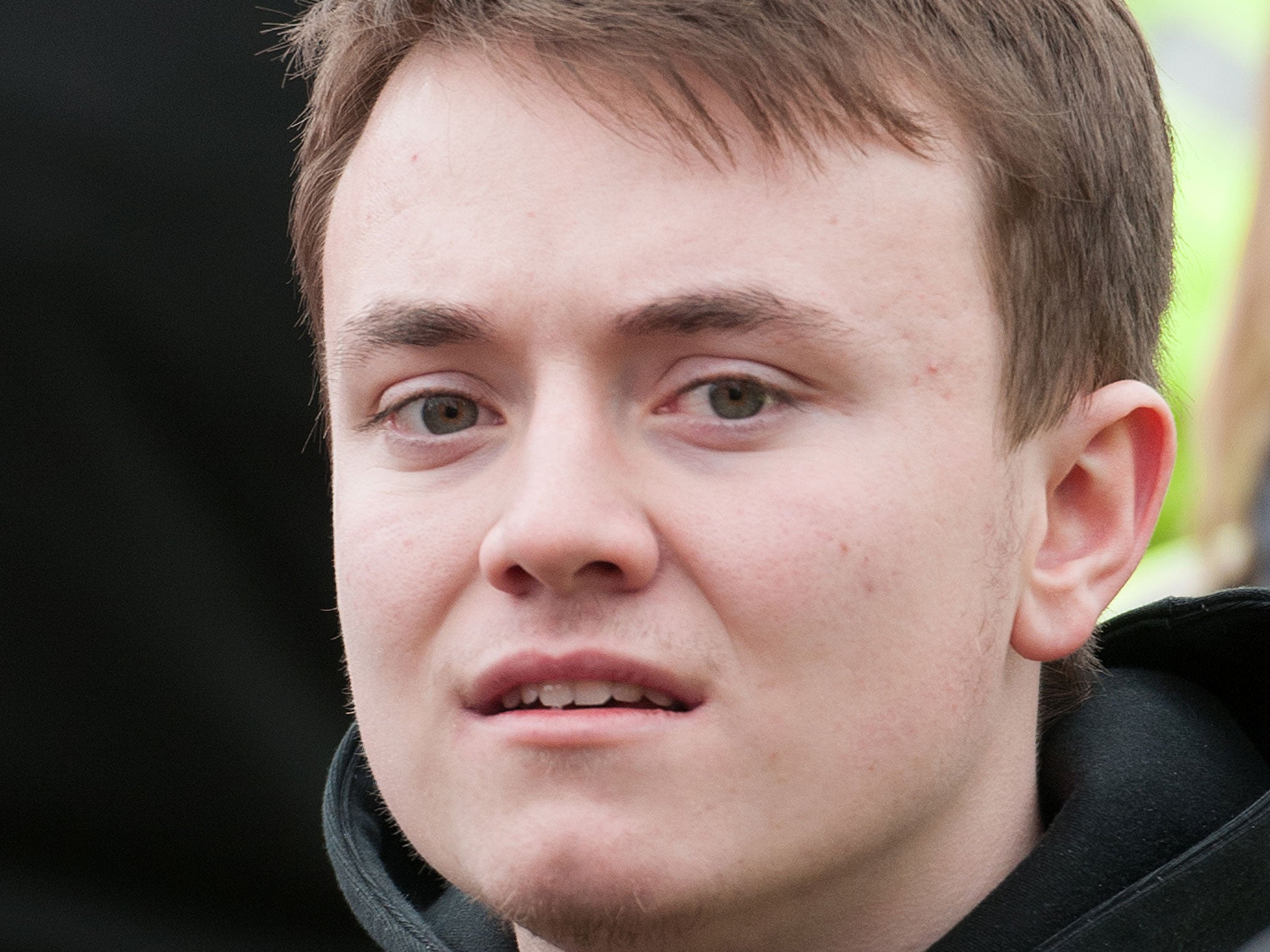
Hankinson suggested that instead of the laborious task of having to manually kill two women, wouldn’t it be better for Renshaw to carry out an attack in a synagogue? At this point Mullen interjected, protesting there would most likely be children inside. Renshaw turned sharply. “Their kids are still vermin,” he said. “You don’t say, ‘Oh look, it’s just baby vermin,’ do you? Vermin is vermin and has to die.”
Renshaw’s 18in Gladius machete was specifically chosen for the task of cutting through human bone and flesh. He’d even seen an example of the machete’s prowess when it was used to cut through a pig at a trade show when he worked in a DIY shop. For three hours the group discussed Renshaw’s incredible plot. Once he had convinced them he could carry out the murders and explained how much effort he had put into researching them, it seemed like the job was done. No choreography, no face masks.
Renshaw had prepared everything needed to carry out the murder and as Mullen and the Crown Prosecution Service saw it, he wanted permission to do it in the name of National Action. It was at this point Mullen claimed Lythgoe uttered the immortal words “Don’t f*** it up.”
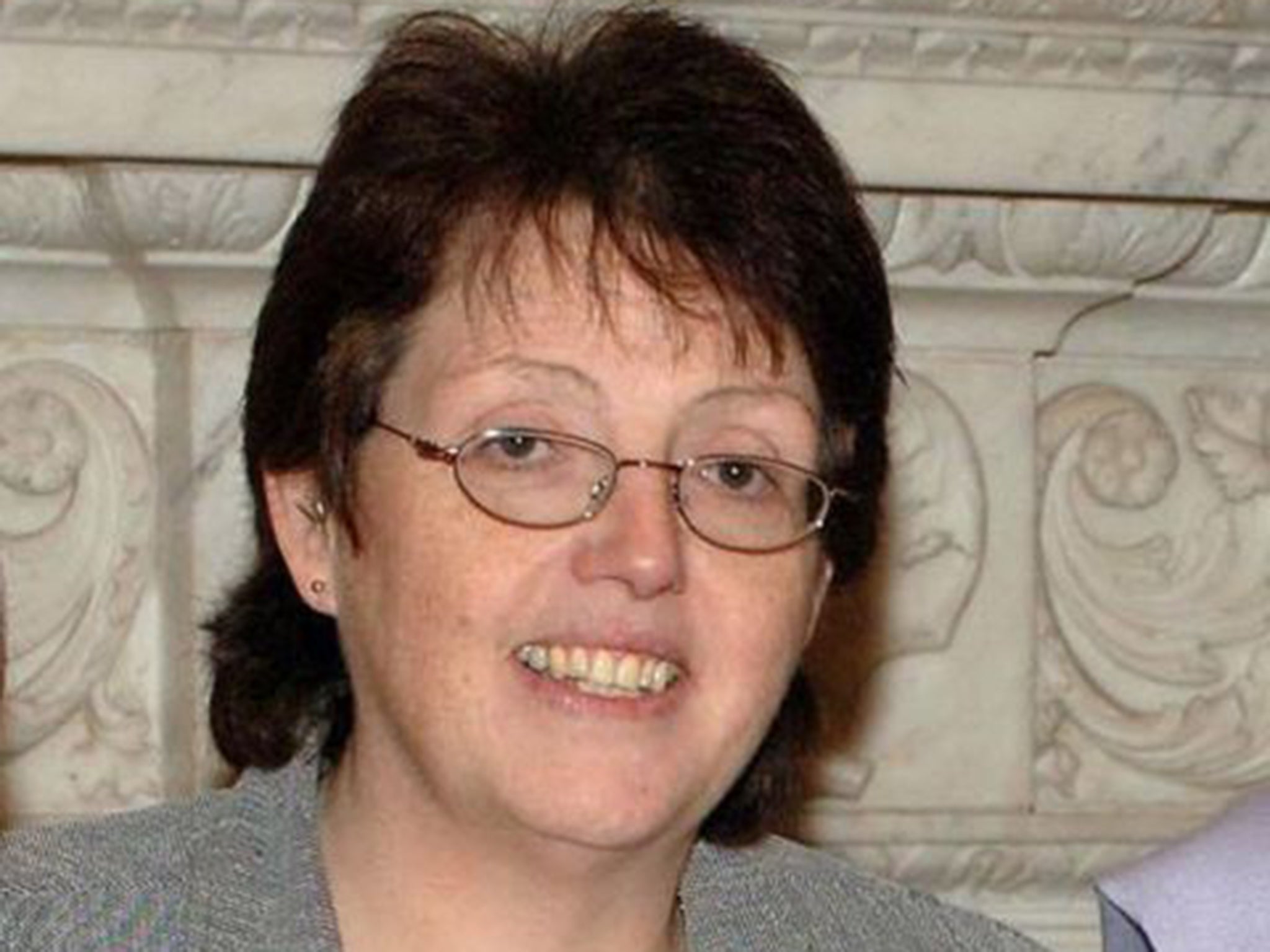
Having learned of his murderous plans, the group decided to go to a nightclub to get Renshaw laid and cheer him up. At the club, Renshaw even approached a woman and introduced himself as a terrorist, but as he would tell Preston Crown Court the following June, he really had little interest in women.
For Mullen the moment was surreal. The calmness over three hours during which all of his fears and the others’ dreams seemed to be playing out in front of him, made him spin. Many of the group would later claim in court that it was drunken talk, but between them they had only 15 drinks in three hours, while Mullen drank just coke.
Mullen, as per our rules and instructions, extricated himself from the situation once the others were set on nightclubbing. He made his way home nervous, confused and panicked. He didn’t ring 999: what was the point? The lads would all be pissed by now and the local police would pay no real attention to a bunch of drunks – and that lack of understanding over what was at stake could prove as fatal to Mullen as to the MP and the police officer.
He had it all planned out. He knew where to find Cooper, had even searched online how to kill her and how long it would take her to bleed to death
As we spoke I went over the information twice with Mullen. I was confused. For a start, I asked, “Who the f*** is Rosie Cooper?” We argued that maybe it was Yvette Cooper, the Labour frontbencher and head of the Home Affairs Select Committee, that Renshaw had meant. She’d been targeted by National Action twice before.
Mullen was now in deep trouble, bordering on trauma. “He’s gonna kill the MP, really soon, immediately!” he shouted. “His local MP, Rosie Cooper from Skelmersdale.” For a minute I was struck dumb and panicked. My missus wouldn’t take well to a murder breaking out on her sunbed watch. I had to ring Nick Lowles, Hope Not Hate’s chief executive. For the rest of the day there were panicked and cautious phone calls. Lowles made me drill Mullen for more information, but a call had gone in to Ruth Smeeth, the Stoke North MP, to get the parliamentary police to contact Cooper immediately. We all bit our lips and nails; the tension was horrendous. Lowles had never met Mullen but we both agreed whatever happened, we would look after him come what may.
We all spent the whole day, the three of us, on the phone in dazed conversations. We’d sort of expected an act of terrorism, we’d seen so much evidence that it was likely imminent, but little Jack Renshaw?
The last call of the day was late in the evening. Mullen was walking his dog, feeling miserable alongside the canal. The whole weight of the world was on his shoulders. We now had to discuss the inevitable. Other than Lythgoe’s “Don’t f*** it up”, the words I remember the most, is having to tell Mullen that it was all over. If someone’s going to kill an MP and a police officer, there’s no way those revealing it can simply disappear. We were all going to end up in court.
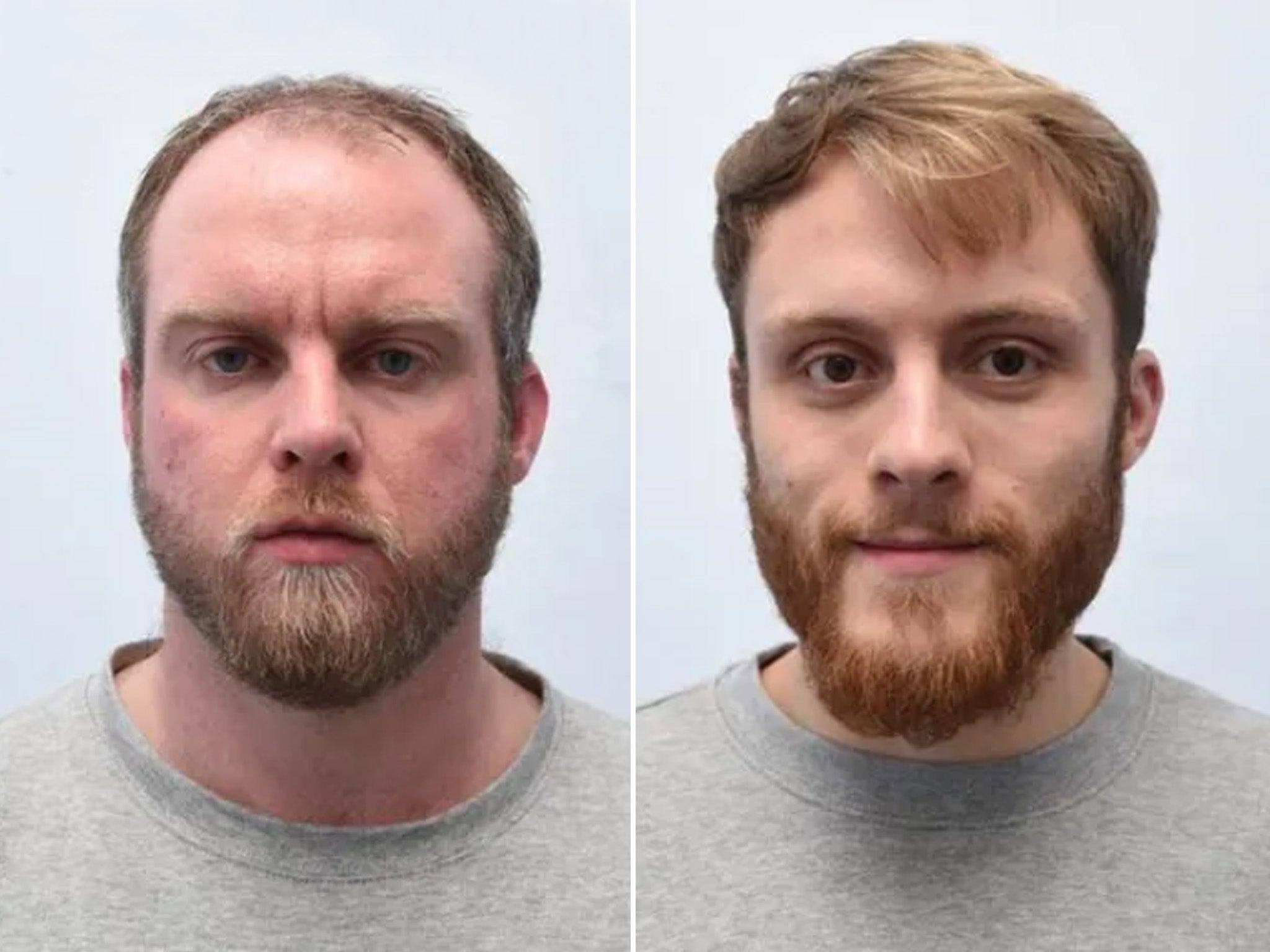
“I know” he said, “Just look after me.”
On Tuesday, 4 July, Nick Lowles made a statement containing information from myself and Robbie Mullen in the police offices in the House of Commons. Ruth Smeeth, the MP who Lowles had first notified of the threat, accompanied him. As per our agreement, Robbie Mullen wasn’t named. My holiday was over. My missus packed in an angry silence.
Rosie Cooper had changed her planned routine and been given security. Jack Renshaw was meant to report to police on both 3 and 4 July to answer bail for inciting racial hatred and for child grooming. He didn’t show up and the police didn’t know where he was. On 4 July the police started kicking down doors in the hunt for the potential murderer.
Renshaw was eventually found at an address in Skelmersdale on 5 July, along with his machete. His father’s doors were put through; he later complained it cost £204 for a locksmith to repair the damage.
After leaving parliament, still not knowing what lay in store for all of us, Lowles rang me. “I’ve just been told by the police that Jack Renshaw is also up for child grooming.” It all made sense to us now.
Back in Runcorn, Mullen was in a state of confusion and fear. We had no idea of knowing what the police were going to do next. For Lowles, the problems were just beginning. On 5 July he attended a meeting at the Home Office. Presenting to the group, the police assured the meeting National Action was finished, was no longer active and was no longer a threat. Lowles bit his lip, but people were going to be angry with us. What an absolute humiliation that Lowles had sat through the presentation in silence without saying a word. What could he say?
Almost immediately we came under huge pressure from the police’s Counter Terrorism Command in London. It was as if they resented us having the information ahead of them. We had somebody active in a group they’d assured themselves, and now the home secretary, had disbanded. Understandably, the police wanted to talk to Mullen so he could help them prosecute Renshaw. However, Hope Not Hate had a duty of care to our source and we insisted on an immunity agreement, whereby he wouldn’t get prosecuted for what he told them. The police were none too discreet when it came to letting us know they were pissed off with us, either.
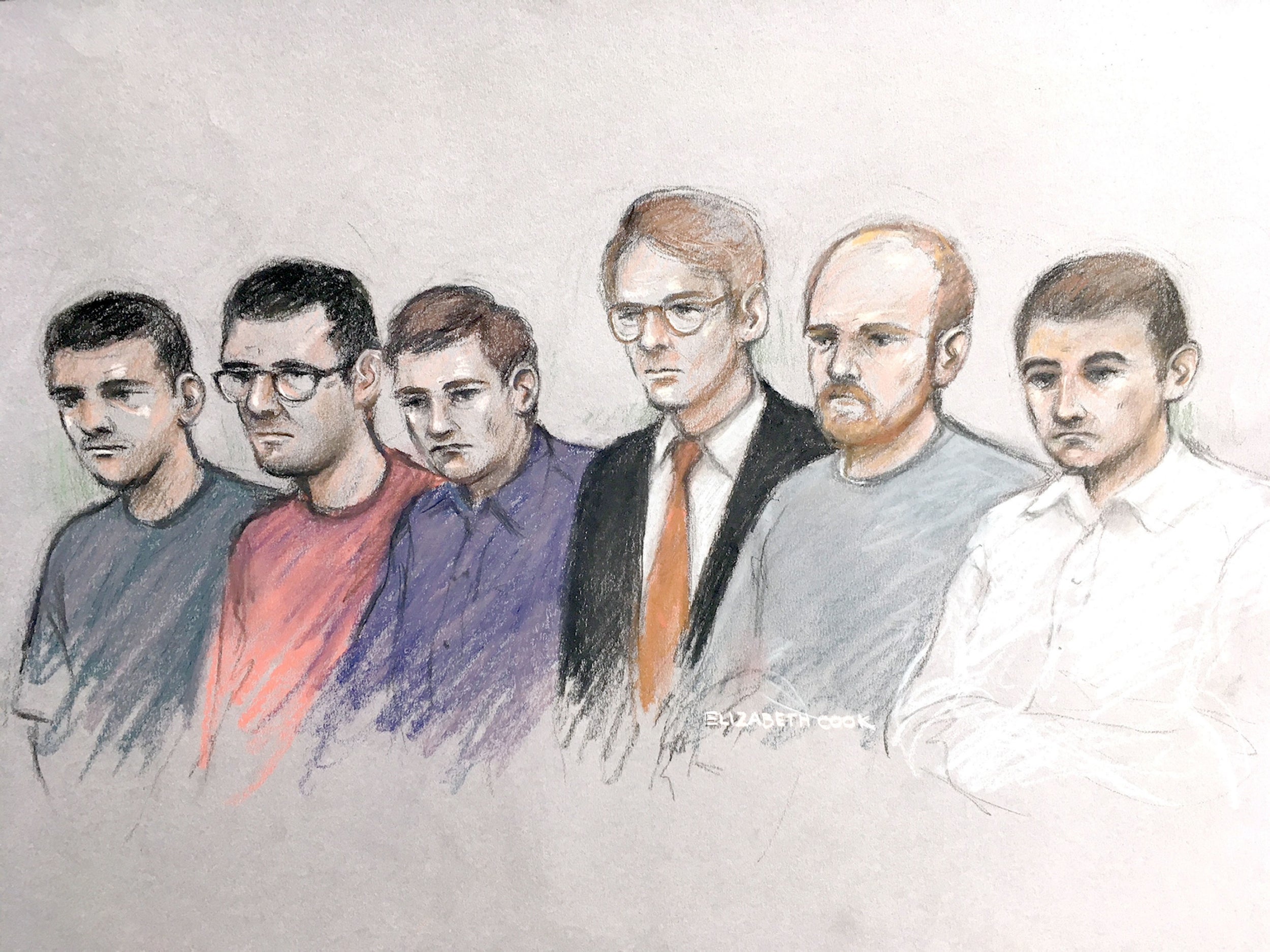
We knew the establishment had reacted because Rosie Cooper was safe and Renshaw had been arrested. We wanted Mullen to be part of the process. We’d been resolute in believing that. But was it too much for us to want some kind of assurances he wouldn’t be prosecuted too? The police initially rejected this offer and insisted we pass him over to be interviewed immediately.
In mid-July a detective sergeant at Counter Terrorism Command rang Lowles, telling him we were “out of our depth” and needed to pass our source over to them. He added: “Of course, as I’m sure you know, by handling a source from within a proscribed terrorist group you’ve broken the law under the Terrorism Act.”
Hope Not Hate took legal opinion and the news wasn’t good. We were informed that under the Terrorism Act there was no protection for journalists and their sources. With no cover, we were advised it was only a matter of time before we had to hand over the name of our source or leave ourselves open to potential prosecution.
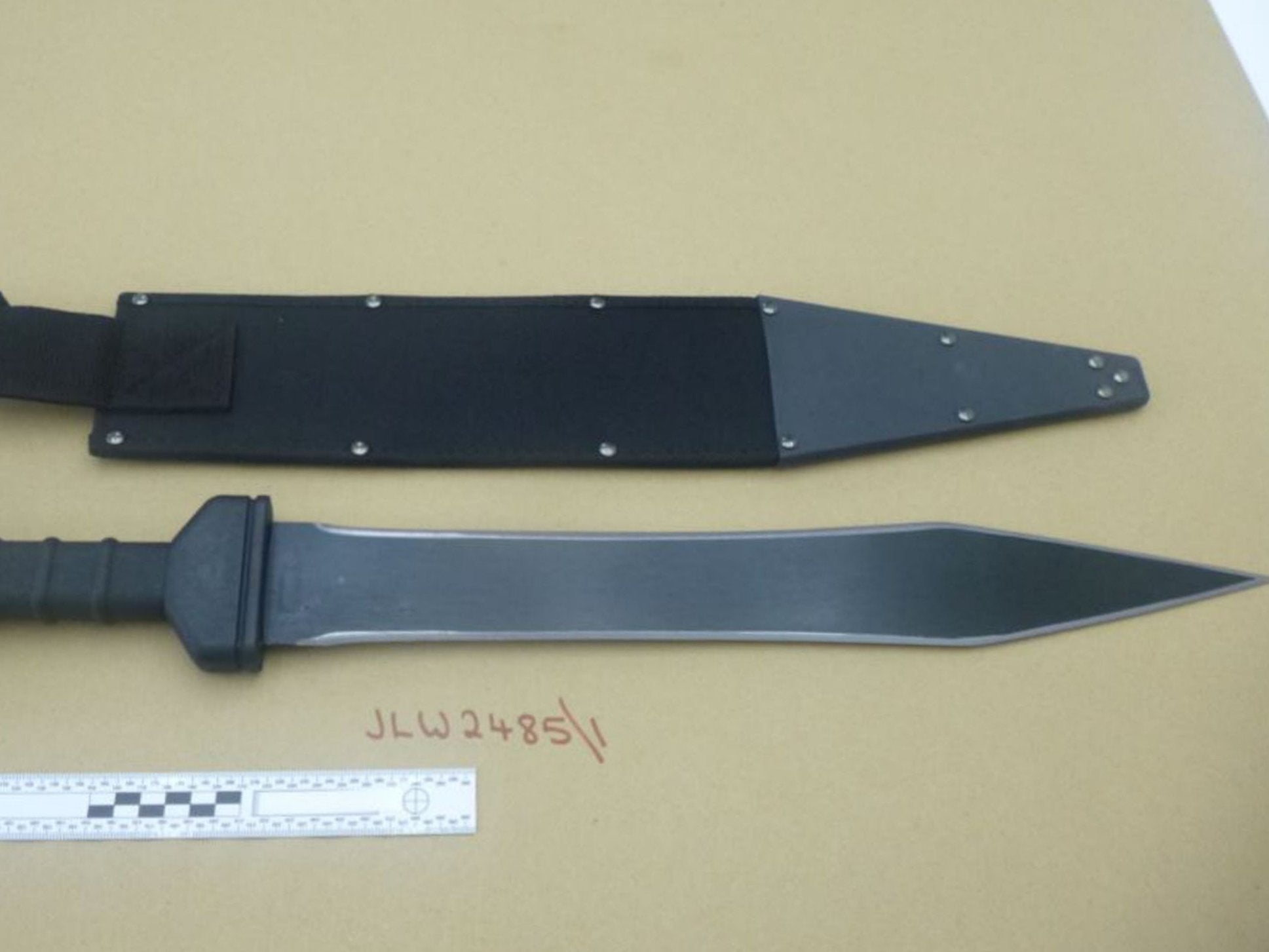
Rather disturbingly, Mullen took the news that Lowles and I were facing going to go to prison as a good thing. He seemed positively delighted at the thought that “Lord Lowles”, as he called him, would be taking art classes at the Scrubs. Mullen had grown up thinking entering prison was an inevitable rite of passage for young men. We spent a long time dissuading him it had to be inevitable.
Mullen was resigned to the fact he might have had to go to prison for membership of National Action, but rather darkly and understandably queried: “I saved two lives, right?”
The reality was now hitting home with Mullen. As a precaution we gave him money and instructions to get himself a passport. He’d never been on a plane in his life, but I didn’t really give a toss what anybody thought about that. Mullen had to continue inside National Action while all this took place. Worse was, of course, the police knew it would be somebody close to Renshaw in the northwest. The light relief was they knew who none of them were. We had to get Mullen into negotiations and get the rest of the gang off the street. As far as they knew, Renshaw had simply been arrested for his speeches again, but how long would that remain a secret?
Only a week after the murder plot, the group met in the Piccadilly Tavern in Manchester. Mullen feared there would be a bloodbath. Since the home secretary’s ban, Hankinson had taken a severe dislike to Lythgoe. We photographed them all meeting up outside the train station.
National Action had growing concerns about their own safety and liberty. On 26 July, Renshaw’s father, in response to a worried query from NA about both his son’s state of mind and the safety of the group, said one of the group inside National Action “was plod [police].” Terror broke out inside the gang. At this point, nobody knew about Renshaw’s other charges, related to child sex grooming.
By the end of July, Mullen had been to see a solicitor, paid for by Hope Not Hate, who made an arrangement for him to be interviewed by Counter Terrorism Command at a secret location for two days. His case was hopeless. There was still no offer on the table and surprisingly, as well as being humiliated and shouted at during a two-day interview under caution, they asked very little about the Renshaw case. At times, it felt as if it was Hope Not Hate that was being investigated, not National Action. The police said horrific things to Mullen, threatened him and bullied him throughout. When they returned him after two days, he was traumatised. So too was Mullen’s solicitor. He told us he had never seen an interview like it.
Mullen, Lowles and I met and discussed the interview. The police were close to losing Mullen, who now had a passport and the names of people overseas who would put him up and look after him. Our own doors were potentially hours from being put through by the police.
On 1 August, after much arguing with Lowles, he agreed to us firing a shot across the bows; we ran a story that hit the international headlines. “Exclusive: Nazi Terror Group Back on The Scene” with pictures of National Action’s Warrington gym, naming and shaming Lythgoe for being the gang’s leader, along with other juicy bits of gossip. Now everyone went into a panic.
It was a huge risk and that’s what Lowles didn’t like about it. But rather than argue about it any more, we went shopping for ties to wear in court for our own potential sentences (code for getting drunk). Lowles and I were picking out ties when news came through that there was an offer of limited immunity on the table for Mullen if he made a full disclosure to the counter-terrorist police. But the harassment didn’t end there. Mullen refused to go into police protection and just about everything that could be plugged in was taken away from his house. The house itself was turned upside down and once more he was dragged away for two days. This time his solicitor put his foot down. He was certain the police were trying to recruit Mullen, while Mullen steadfastly refused. Despite the whole world now knowing where the gang’s headquarters was, the police in Warrington carried out a raid on the wrong location, instead raiding a keep fit place National Action had used once or twice the year before.
Inside National Action there was real horror at the thought of a mole, worse still, potentially two moles – a Hope Not Hate mole and a police mole – in their midst. Mullen was now juggling police harassment, our expectations and the increasing paranoia inside the gang. National Action’s leaders thought they were looking for two different people. If they found the Hope Not Hate source, they decided, they’d murder him. They had a plan to take the person out to the woods and set fire to the body and bury it in acid. They were potentially very thorough. The police mole was just to be beaten up. Worryingly, Lythgoe had gone into a trance, wracked by revulsion and anger, barely able to speak.
Things really took a queer turn very quickly. Hankinson decided at possibly the worst juncture in proceedings to replace Lythgoe as leader. With there having been no terror attacks as yet by National Action, he was certain Lythgoe was the police grass.
We watched aghast as the previously impenetrable gang turned on themselves, splitting into microcosms. Mullen and the others agreed to stop meeting at the gym and installed Hankinson as temporary leader. Lythgoe went into a massive panic and began issuing threats. Time was running out for everyone. Now we just had a waiting game.
It appeared that London’s Counter Terrorism Command wasn’t interested in the Renshaw case and was being shadowed by Lancashire Police, who were handling the Renshaw investigation. In all, Mullen would be interviewed for more than 70 hours.
On 5 September everyone was rocked when police carried out raids across the midlands. We had to check among ourselves that it wasn’t the Warrington lot. It would appear it was only after information gleaned from Mullen’s interviews that the phone of Alexander Deakin, National Action’s regional commander, was given a proper forensic examination. On doing so, the police felt they’d hit the jackpot. The group had been stockpiling bomb manuals as well as weapons. The police hadn’t tipped off Lancashire police, either. Their greatest worry was that a number of serving soldiers involved with National Action in the midlands were about to be shipped out the country, so they had to act.
This was just never going to end. Mullen cursed himself and me, he cursed National Action and most of all, the police
Other raids followed in the region, causing a massive dumping and burning of materials across the country, particularly in Warrington, where Lythgoe was still meeting with a few old and new National Action recruits at the gym, awaiting the next move by Hankinson’s faction.
Lythgoe was no longer receiving a stipend from National Action and, in panic, he very quickly signed up to work at a warehouse around the corner from his home. He still kept trying to persuade Mullen and Hankinson to come back to training and meetings, but they both refused, saying it was too dangerous. We genuinely feared Lythgoe and others would instigate violence against what was now a rival faction. Bizarrely, despite all the paranoia and threats, and the no small matter of the world knowing it was the headquarters and training centre of an outlawed terror group, when he wasn’t working, Lythgoe kept the gym open and running. He just continued with it. A steady stream of people kept visiting for training and instruction. At the very least it didn’t appear to dawn on any of them, that with Renshaw in prison, those party to his plot would soon be arrested in relation to the charge too. This was a heavy burden for Mullen.
The different police forces seemed to have made no coordinated effort to inform each other about the raids; valuable evidence was probably lost as National Action members dumped as much as they could. What a chance was lost.
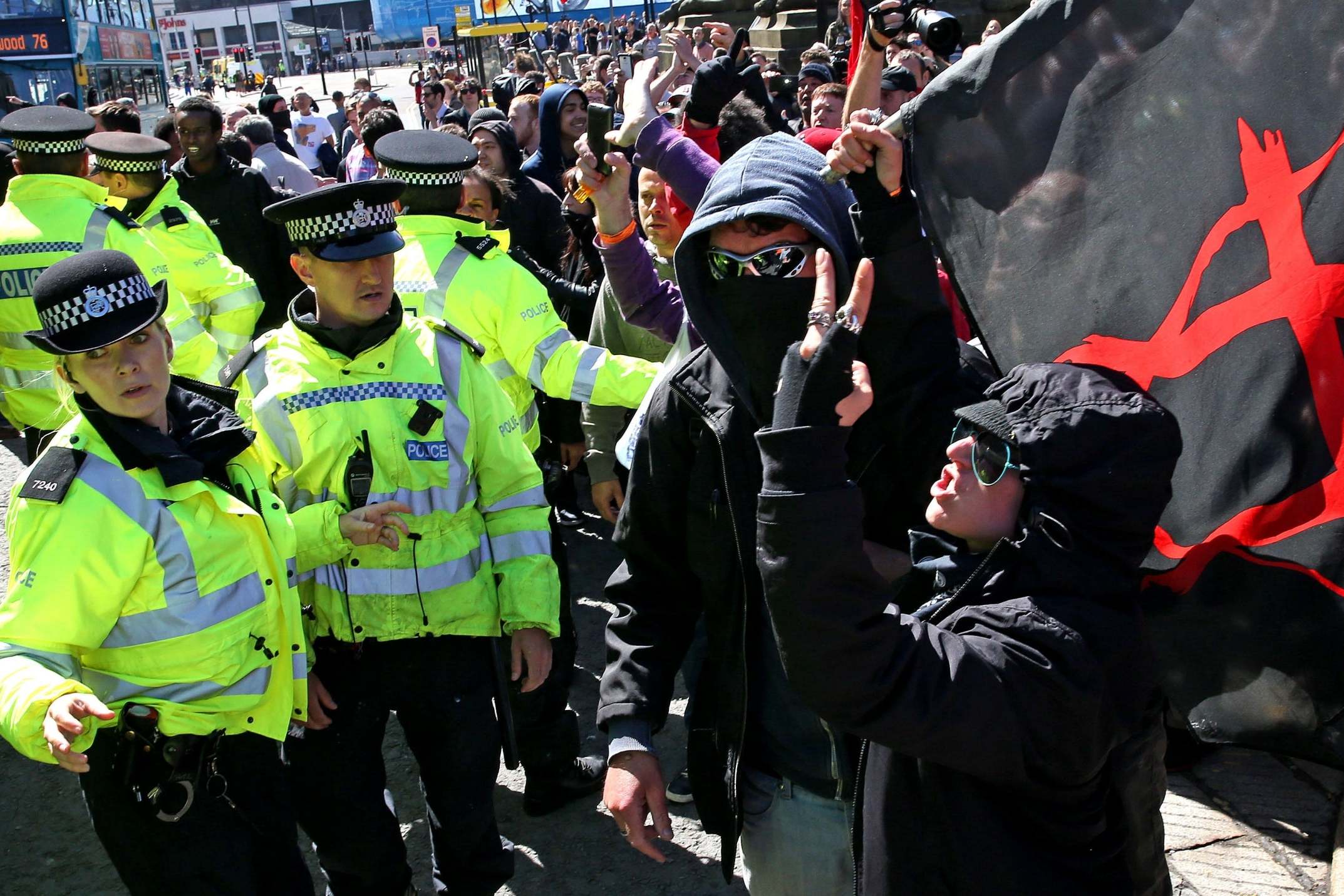
One of those arrested in the raids in the midlands was Paul Hickman, the former BNP man and one of the very early voices in National Action. Hickman would take his own life in November 2017 rather than face trial.
On 21 September, the heavily pregnant Claudia Patatas, the Portuguese national living in Banbury, Oxfordshire, with a penchant for swastika cushions, was googling for “best crossbow for apocalypse”. Adam Thomas, her waif-like husband, had been convinced the end was near, that it was the end for their little excursion into terrorism too. She’d been searching the Hope Not Hate website for news and updates about National Action. There was none. We’d removed the entire history of the group from our servers.
On 26 September, officers from London’s Counter Terrorism Command drove to Runcorn and picked up Mullen from his desk at work. He slunk in the back of a car with darkened windows and wished the world would swallow him up. Mullen was now without his solicitor. This was just never going to end. He cursed himself and me, he cursed National Action and most of all, the police.
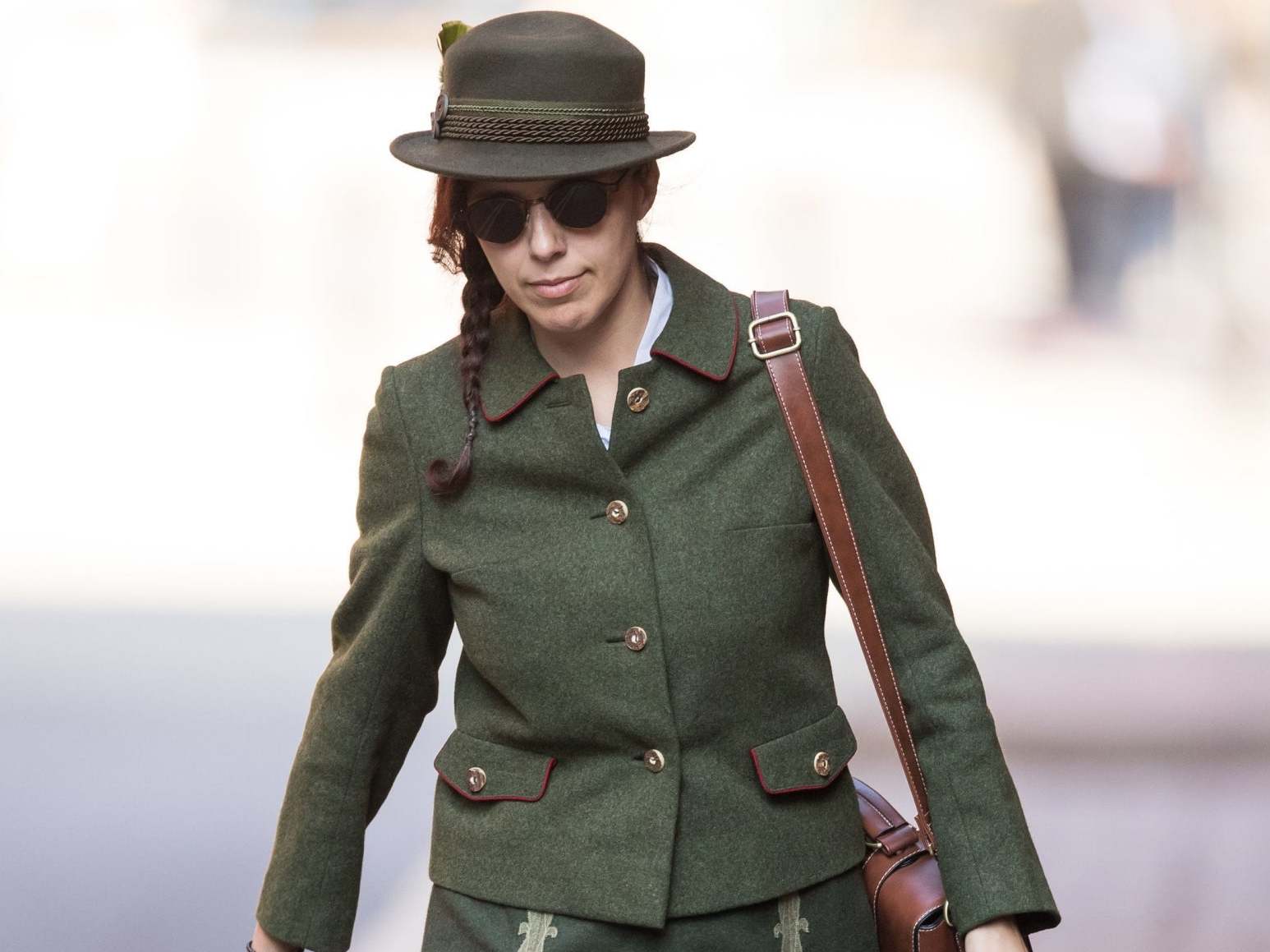
In a nondescript room in a nondescript building that seemed to have no other occupants, he sat in a room with a man and a woman plainer than paper. They informed Mullen that if he went into police custody/protection, they’d pay his then salary for two years. He refused. Mullen was exhausted, antagonised and confused. When would they ever arrest the people who plotted to murder an MP and a police officer? He was dropped off at home in silence just after midnight. He wondered if he’d die. Later that morning, Warrington erupted. On the same day it was announced the mirror groups of NA, NS131 and Scottish Dawn, were now also proscribed organisations, the police finally hit the northwest gang as part of Operation Harplike.
People in Warrington were almost relieved with the arrests. There had been an air in the town that something was going on under their noses, that terrorists and race-haters had been travelling to their neighbourhood to train. The odd bits of graffiti, the endless stickers, weird boys dressed in black hanging around the train station had all been explained when Hope Not Hate revealed the secret gym. It wasn’t just for the money Lythgoe had rushed himself into a job, it would also give him cover.
The chat groups and messengers became silent. The pinging and buzzing ceased completely. One by one, the groups were deleted as the entire leadership of National Action were having their doors kicked in. It was the sudden silence from the phone that proved so disturbing for Mullen. In the time he’d been passing information to us, some five months, he’d sent on thousands of messages from these group chats. By 8am on 27 September, the groups had all vanished.
Mullen and I watched the police raids unfold, messaging each other when we could name another person we knew by their location. A helicopter was deployed for the raid on one home. It would take them three days to sift through Lythgoe’s home, his mountain of note pads and endless books on the art of terrorism.
Neighbours of the arrested, taking to Twitter, made for the best reading. Mullen rang in sick for work. There’d be no more sick pay. As he quite clearly wasn’t going to be raided, he felt at somewhat of a loose end. I said I’d come up and we’d go to Manchester and hide out in a hotel bar for the evening. I worried he’d take the names he had and go to the airport if I left him on his own. It looked like the harassment of the day before had been his final invitation to jump onboard with the police.

The police entered Mullen’s workplace after lunch looking for him. He’d been waiting at home for at least a pretend “nicking”. At 4pm the police went to his home and knocked impatiently. One of the team presented him with an Osman warning, meaning there was now a credible threat to his life. Having shown him the warning and him having acknowledged being shown it, they were gone. The minute I heard from Mullen, I headed for Euston train station.
By 8pm that evening, Mullen was switching cars in the pissing rain at Runcorn Station, all his worldly goods stuffed in a sports bag. His dog was taken care of. The rain was furious and the street lighting not the best. We’d blocked the road as he ran out of home into the back of the car. We drove through the deserted, dimly lit streets until we found the second car, jumped into that and then we too were gone. The only words were everyone in agreement they’d never seen or experienced rain like it. It was just as it is in the movies.
Mullen lay in the back of the car, along the floor, in silence, not saying a word. It was an awful drive. I had very little idea what I was going to do with him. For him, the world was ending.
The past year had been stressful and even traumatic, not least for Robbie Mullen, who has had his whole life turned upside down. He had to walk out of his job, leave his home and go into hiding. He has not been able to get another job due to being flagged up on a terrorist watch list and has lived with the constant fear of being hunted down by his former National Action friends.
His situation wasn’t helped by the attitude of the police, who initially tried to exert pressure on him to leave Hope Not Hate and go into their custody. In front of a Thompson’s solicitor, who we instructed to represent Robbie, police officers from London bad-mouthed Hope Not Hate and told him not to trust us.
But on the day of the National Action arrests, when he was told by police there was a serious and credible threat to his life, the officers left. It was Hope Not Hate that picked him up within hours to move him to a safe location.
This is an extract from Nazi Terrorist: The Story of National Action by Matthew Collins with Robbie Mullen. You can read the full story on National Action and buy the book here
Join our commenting forum
Join thought-provoking conversations, follow other Independent readers and see their replies
Comments